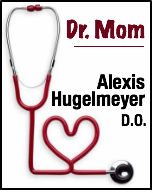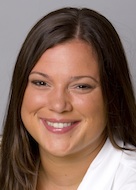Every time I finish doing a pap smear or a rectal exam, the same thought flashes through my mind: Being a doctor not as glamorous as I envisioned it as an eager medical student.
There comes a time in every physician’s life when we have to learn how to answer questions about very intimate details of a patient’s life or perform a very personal exam and make it seem like we’re not embarrassed.
You know, things like…
From a college-age male: Doc, I have this gross, discharge down there. Can you check it out?
From a 60-something man with a new sexual partner: Doc, can you look at this lump in my groin?
From a post-menopausal woman: Doc, my nipples are leaking milk.
From a transgender teenager: Doc, I would like to have a sex-change operation.
From a very handsome man my own age: Doc, can I get some of that Viagra stuff?
or from my end….
To the very handsome man my own age: Ok, I have to check your prostate now. But don’t worry (holding up my hand), I have small fingers, ha ha ha. (Awkward silence).
To the transgender teenager: Do you have a penis or a vagina? Are you sexually active? With men? Or women? Both???
To the post-menopausal woman: Can I take a look at your nipples?
To the 60-something man with a new sexual partner: You can take your pants down, I’m going to have to examine your lump.
And to the college age male: I’m sorry, but I’m going to have to use this Q-tip to get a culture of the discharge
 I consider it a compliment when patients feel comfortable enough to come to me with intimate health matters. But after a while, these conversations and examinations really don’t embarrass us anymore. Patients have to understand that we have most likely had this discussion before and even though it’s your first time talking about vaginal dryness, we feel comfortable and so should you. Otherwise, you might be getting answers from the ultimate in unreliable medical resources, Wikipedia.
I consider it a compliment when patients feel comfortable enough to come to me with intimate health matters. But after a while, these conversations and examinations really don’t embarrass us anymore. Patients have to understand that we have most likely had this discussion before and even though it’s your first time talking about vaginal dryness, we feel comfortable and so should you. Otherwise, you might be getting answers from the ultimate in unreliable medical resources, Wikipedia.
After erectile dysfunction conversations, the second most embarrassing topic is the conversation about colonoscopies.
Me: “So, in terms of your healthcare maintenance and screening, we will need to arrange for a colonoscopy.”
Patient: “A what?”
Me: “A colonoscopy is a test where a doctor, usually a gastrointestinal specialist looks inside your colon and rectum with a tiny camera.”
Patient: “Forget it. It’s not happening.”
Me: “Well sir, we screen for colon cancer at your age so that if we find any precancerous lesion we can treat it right then and there. It’s pretty simple and you won’t feel anything.”
Patient: “No disrespect but no one is coming near that part of me with any kind of camera. That is an exit-only, Ma’am.” (Patients have actually said that to me before).
Me: “OK, well, here’s a video explaining it in more detail. Maybe if you know what to expect, you’ll be a little more open to the idea.”
Patient: “I’ll watch your video but I’d rather die of colon cancer than have someone sticking anything in my butt.”
Conversations like that actually take place on a regular basis.
But last week you read about the story of my 34-year old friend from elementary school who recently found out she has rectal cancer. You have heard about Farrah Fawcett and her long life-ending battle with anal cancer. Sharon Osbourne, Ronald Regan, Darryl Strawberry, Vince Lombardi, Barry Gibb, Katie Couric’s husband, Pope John Paul II and almost 143,000 Americans each year were all affected by colorectal cancer. Fifty thousand of those people die each year from colorectal cancer and it is currently the second most common cause of death from cancer in the US.
Colon cancer is defined by any malignant tumor that affects the large intestine whereas rectal cancer is found in the last several inches of the large intestine; those that are closest to the anus. Colonoscopies are used to look for any suspicious tumor or polyp that may become or may already be cancerous. The camera that is used to take a look around also has a tool which can remove or biopsy any suspicious tissue. They are also used to detect conditions like ulcerative colitis, Crohn’s disease and diverticulosis. In addition to screening for colon cancer, a colonoscopy may be recommended to evaluate a patient for abdominal pain, unexplained weight loss, bloating, excess gas, rectal bleeding, diarrhea or constipation.
Certain people are at higher risk than others for developing colon cancer. Screening with colonoscopy is recommended starting at age 50 because that’s when the risk of colon cancer increases for most people. Your doctor may recommend that screening begin sooner than age 50 if you have any relative with colon cancer, especially first degree relatives like mom, dad or siblings. Personal history of breast, ovarian or endometrial cancer also increases a woman’s risk of developing colon cancer. Patients who have a history of polyps, ulcerative colitis or Crohns’ disease may also need additional screening as their risk is higher than normal. As always, smoking increases the risk of all types of cancer, but just because someone smokes does not necessarily mean they will be getting a colonscopy any sooner than usual.
Other studies may also be used to assess for polyps or tumors in the colon. Fecal occult blood testing looks for trace amounts of blood in the stool. A barium enema is an x-ray type of procedure that may help doctors visualize cancerous lesions. Virtual colonoscopies are being studied to determine their utility in colon cancer screening and are not considered standard of care at this point. And of course, there’s the ever popular digital rectal exam. For those of you who aren’t familiar, digits are also known as fingers.
Probably the worst part, after the initial conversation, is the prep. One day before the test, you will need to drink a Crystal-Light-ish flavored drink which will completely clear out your intestinal tract so the doc can get an unobscured view. You’ll need to be close to a bathroom for the whole day and you can’t eat or drink anything else. After that last sentence I’m not sure I can convince you it’s not as bad as it sounds. But once it’s all over, if you get a clean bill of health, you probably won’t have to do it again for another 5-10 years. Whew!
The bottom line is this: incredible amounts of research goes into determining when is the best time to screen and which are the best tests. We do colonoscopies because we know that they can save lives. Screening early means detecting cancer early, which means treating early and possibly even curing colorectal cancer. If you’re symptomatic, get over your embarrassment and talk to your doctor. It might save your life. We all go through embarrassing life situations. And honestly, in the grand scheme of things – two days of slight emotional and physical discomfort is certainly worth the reassurance of having a healthy colon.
![]()

Alexis Hugelmeyer, D.O. is the wife of Michael, mother of Isabella, 5, and Lance, 3, and a family physician whose passion is hands-on manipulation for treatment and healing of any and every type of medical problem. She is the director of community outreach education at Peconic Bay Medical Center and also a private practitioner in Riverhead, where she has founded The Suah Center for Natural Healthcare. A graduate of Villanova University and New York College of Osteopathic Medicine, she lives in Baiting Hollow.
Look for Dr. Mom every Saturday on Riverheadlocal.com
{loadposition tab1}
The survival of local journalism depends on your support.
We are a small family-owned operation. You rely on us to stay informed, and we depend on you to make our work possible. Just a few dollars can help us continue to bring this important service to our community.
Support RiverheadLOCAL today.

































